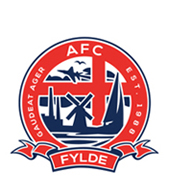Kate Mason, one of the FWA’s newest members, was the proud winner of the Joe Melling Trophy at our annual golf day, sponsored by Vanarama, at Stoke Park on October 7th.
Kate, who left BeIn Sports to join Sky Sports News earlier this year, is relatively new to golf and was the only female player in this year’s event.
Playing in the Hayters team alongside Gerry Cox, Les Ferdinand and Jamie Weir, Kate scored 32 Stableford points, the highest individual score by an FWA member, edging Neil Silver into second place.
There was also debut success for Mike Keegan of the Mail, whose fourball won the team prize. Mike was also playing in the event for the first time, with former Barnsley chairman John Dennis, as well as Andrew Lane and Niall Ashworth from Vpar, who provided the live scoring system.
The individual non-FWA member’s prize went to Stephen Hunt, the former Reading and Republic of Ireland midfielder, who scored a superb 42 points from three-quarters handicap.
Other names from the world of football included former England internationals Steve Coppell, Kevin Phillips and Andy Sinton, ex-Scotland players Bryan Gunn and John Duncan, Matt Jansen, Wally Downes, Paul Clement, Lee Cook and Michael Gray.
The day was generously sponsored once again by Vanarama, whose team was led by marketing director Gary Lemon, and there was a presentation from Jake Martens of Prostate Cancer UK, as we remembered our great friend Ralph Ellis, who enjoyed and organised the event for so many years before he passed away last year.
Steve Bates and Gerry Cox of the FWA National Committee have taken over organisational duties. A substantial sum was also raised for Prostate Cancer UK, and further online donations can be made here: http://bit.ly/2kysOnP
For more about Vanarama visit: https://www.vanarama.com/
For more on VPAR visit: http://vpar.com/
Rodrigo Lara of Hayters TV put together a video of the event: https://youtu.be/z4ZQpdEz07k
Jamie Weir, Kate Mason, Les Ferdinand and Gerry Cox of Team Hayters










